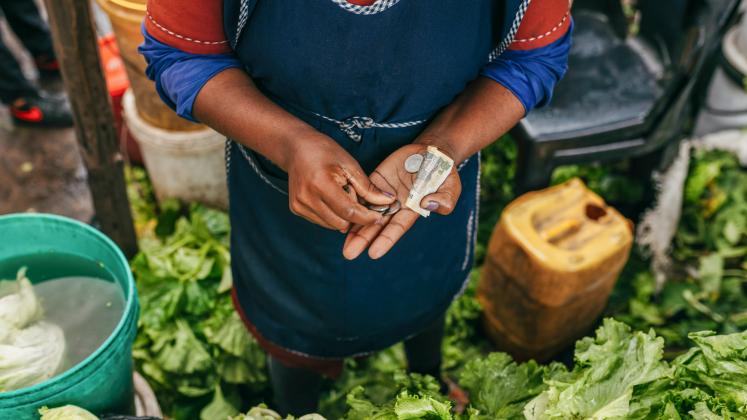In Mozambique, analysing how and why food prices change is crucial. Understanding the dynamics of price formation is fundamental to mitigate the adverse effects of price volatility to the economy. Detailed data on the prices of key food items in Mozambique is, however, limited in both quantity (coverage) and quality (reliability), and little is known about the evolution of prices outside major urban centres.
The Inclusive Growth in Mozambique (IGM) programme started work in 2022 on closing the data gap on key food item prices in the main retail and wholesale markets of Maputo Province. By collecting and comparing prices of food items such as maize, lettuce and tomatoes, the programme aims to improve our understanding of price formation.
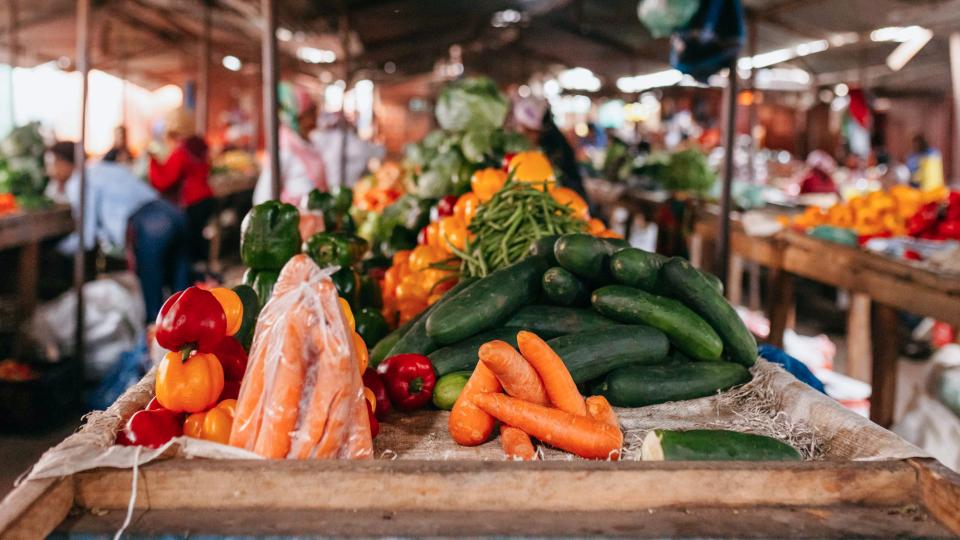
Initiatives such as this one produce valuable primary data for a key sector for the development of the Mozambican economy. The better we understand the dynamics of this sector, the more tools will be available to make effective decisions to boost its performance, improve its contributions to the economy and increase household well-being in Mozambique.
In addition, the programme tests different data collection methods, namely:
- Market vendor survey: The enumerators conduct a survey on price dynamics among vendors. In addition to demographic characteristics, the vendors are asked about the source of their products and purchase frequency, how they determine their prices, how the prices vary and the perceived value of information on price.
- ‘Mystery shopper’ survey: The enumerators gather daily price data from the same markets to validate information obtained from vendors on actual price dynamics.
- Crowd-sourcing prices: This method involves running a low-cost online platform to collect basic price data from market vendors using SMS (text messaging). Vendors will be selected based on the in-person survey (market vendor survey) and offered incentives to participate based on responses obtained from the same survey. The purpose is to validate an online price collection tool based on crowdsourcing.
The objective of the threefold approach is to test different means to collect price data at a low cost and with a high frequency.
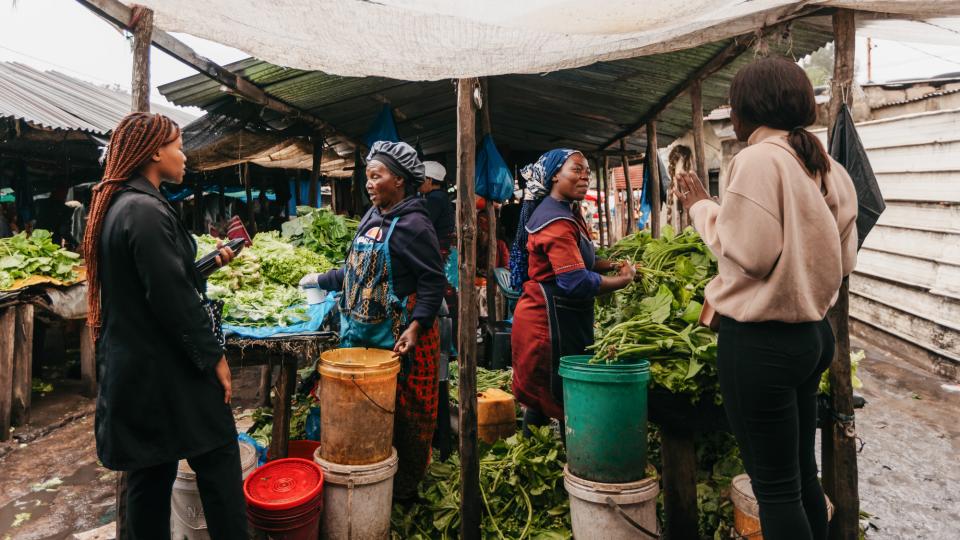
The seed of success is in the daily routine
The markets are bustling with life as early as 7 a.m. — the vendors are bringing in their produce, organizing their stalls and getting ready for a busy day of sales. This is also when the study enumerators arrive in the markets and prepare for their daily work. After having conducted the initial market vendor survey, their task consists of checking prices as ‘mystery shoppers’.
Altogether, 20 enumerators are divided between 25 selected markets for the market vendor survey, and 10 markets in the ‘mystery shopper’ phase, around Maputo Province. According to one enumerator, "early morning was the best time to get the freshest produce despite prices being higher than in the afternoons in some markets. However, in more formal markets, there was little price variation throughout the day".
"This was also the time when vendors were also more energized for the day and happy to chat after setting up their stalls, making it the best time to collect data. By building a rapport with them, we were sometimes able to get a ‘bacela’ — an extra amount of produce given for the same price", another added.
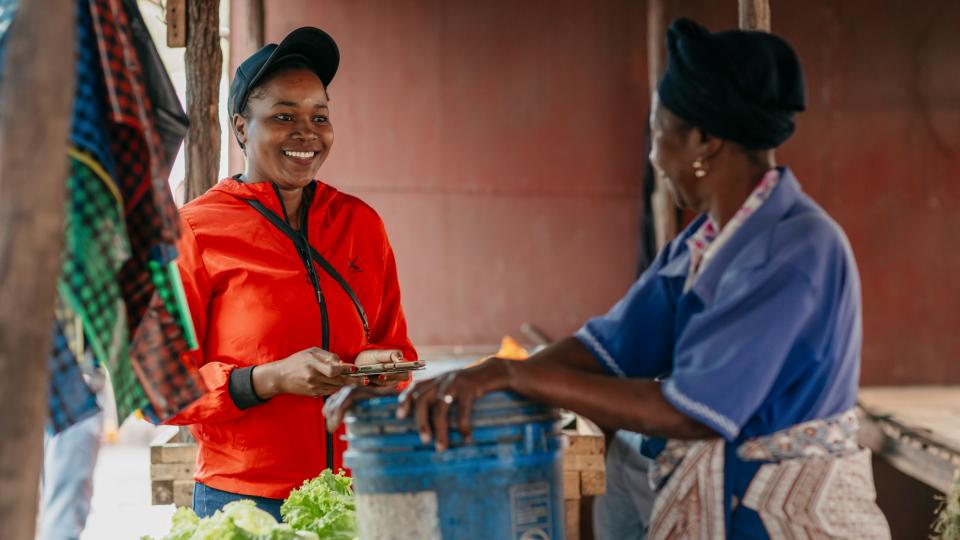
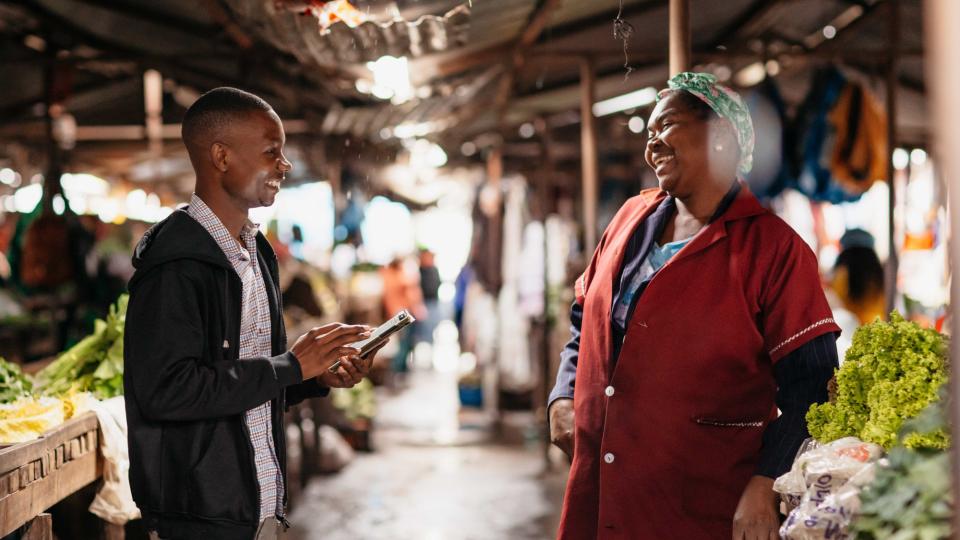
From 9 a.m. onwards, customers come in and out, all looking for a good deal and fresh produce to cook their meals. Depending on the market, resellers also come in abundance for their batch of the day. The vendors come from various walks of life. Some are smallholder farmers who sell their own produce — they take pride in their work and in having beautiful displays to attract customers. It is common to have families running the business for generations, passing down tricks of the trade.
The enumerators carry out their last price check in the late afternoon. This is an agitated time as well. With rush hour looming, everyone is looking to go home. According to one enumerator, "in some markets, the prices may drop to avoid vendors having to waste their produce, as being exposed to the heat all day makes it less fresh and unlikely to survive a night in the hot, humid weather".
Disentangling the dynamics of price formation
The dynamics of the fieldwork allow enumerators to make initial observations on some of the factors that influence prices charged to customers.
According to one of them, the gender of the buyer may influence the price that is charged. "It is usually assumed that women tend to shop for the home and know the prices better — men are more likely to pay more."
Other enumerators highlight the source of the produce as affecting how prices vary. "The vendors need to make a profit and often charge an additional price on the price they were charged from their supplier. Typically, people who sell their own produce charge lower prices", said one of the enumerators at the market of Xiquelene.
"The best time to buy if one wants fresh produce is early morning — one gets the first pick of the day! But it’s important to remember this is also when prices are highest. If one wants a good bargain, going in the afternoon is the best bet", argued another.
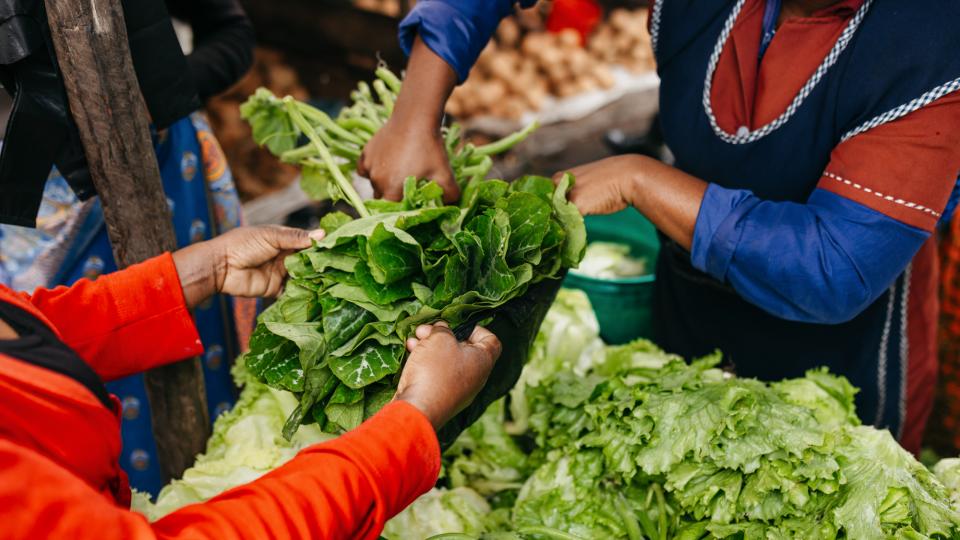
Overall, the enumerators found they had an enriching experience. According to Micas Sarmento, "it was interesting being able to go to different markets and understand how prices work. By accessing various markets, we were able to see just how many options are available in terms of price and quality".
"This experience was good and allowed us to learn how to make the most out of the money we have. I was able to use less money to buy more products…of the same quality", highlighted Helena Mahule.
Bridging the data gap
Understanding food price formation is fundamental as it will allow relevant stakeholders to investigate price formation along the value chain and create additional sources of information that can be used to design policies and inform decision-making processes.
Initiatives such as these are important for their role in producing valuable primary data for a sector which is key for the development of the Mozambican economy. The better and more granular understanding there is of the dynamics of the sector, the more tools will be available to make effective decisions that boost its performance and improve its contributions to the economy.
This article was first published on the UNU-WIDER website.
Suggested citation: Firmino Guiliche, Elina Penttinen and Naira Materula., "Studying Food Price Dynamics in Mozambique — Insights from the Field," UNU Centre, UNU-WIDER (blog), 2024-05-22, 2024, https://unu.edu/blog-post/studying-food-price-dynamics-mozambique-insights-field.


